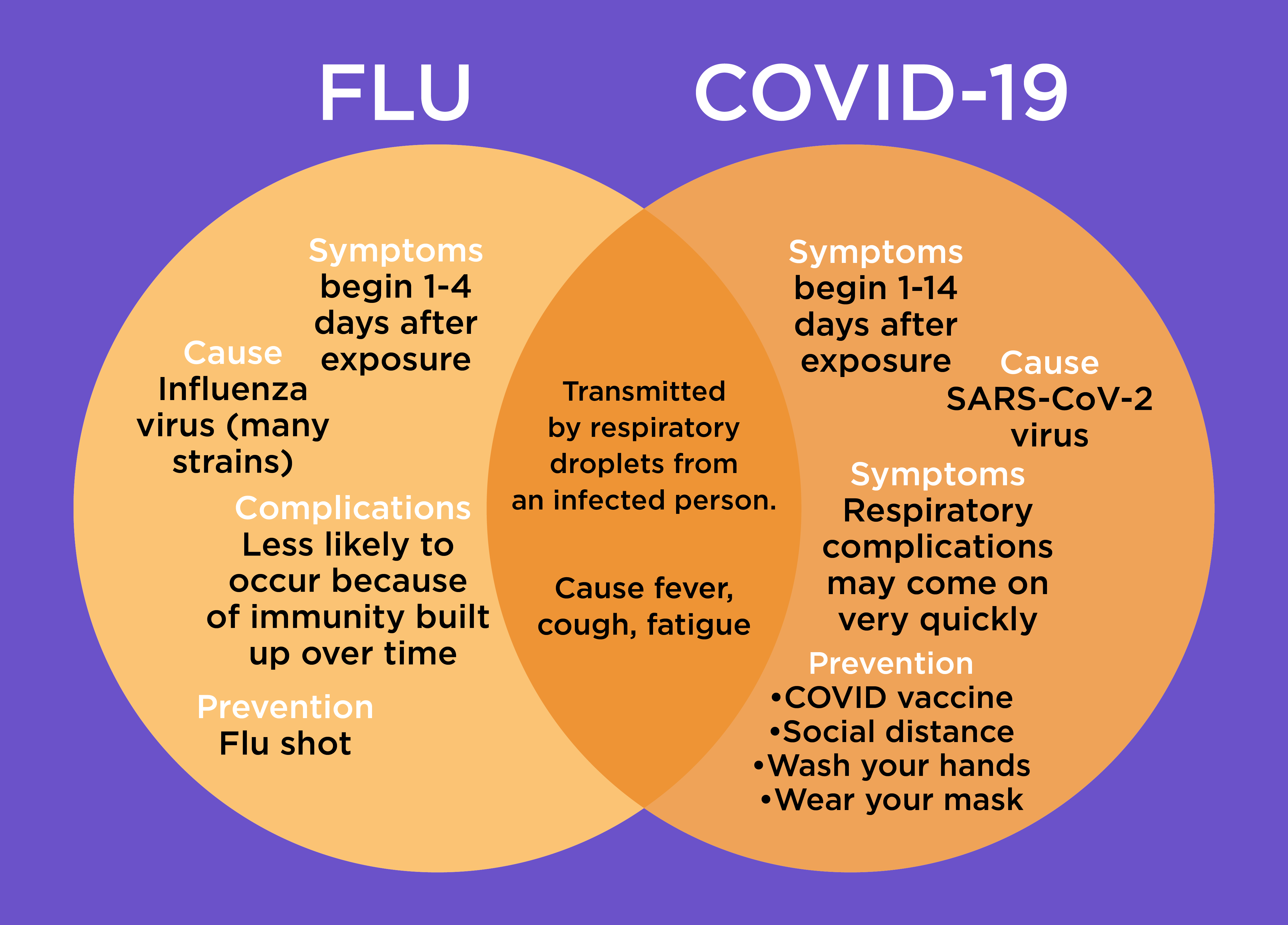
Getting a flu shot this year is more important than ever as Public Health Experts predict an increase in upper respiratory illness this fall; meaning that they anticipate to see more influenza, strep throat, colds, and other ear, nose, and throat infections.
Why is it important to get a flu shot this year?
Getting the flu shot will help you differentiate between illnesses if you happen to fall ill this fall. COVID-19 and the flu share some similarities in symptoms. Knowing that you have received the flu shot this year can help you and medical professionals determine if it is COVID-19 or not.
Last year, there was essentially no flu season as everyone followed COVID-19 precautions which aided in fighting against the influenza virus too. However, I remember back to pre-pandemic college days during flu season where sometimes half of my classmates were either coughing and sneezing all over our shared spaces and were coming to classes with fevers spreading their germs to everyone else. Eventually, nearly everyone in the class had to miss a few days to recover from their illness.
Flu Shots & COVID-19 Vaccines
Did you know that you can get your flu shot and COVID-19 vaccine at the same time? Previous COVID-19 vaccine guidance recommended of waiting 14 days between administration of other vaccines as a precaution. The CDC now states that the COVID-19 vaccine can be administered without regard to the timing of other vaccines. This is because they have been able to collect enough data regarding the safety of COVID-19 vaccines and received FDA approval and authorization.
What happens if I receive both vaccines at the same time? The CDC suggests if you do get both at the same time, that they should be administered in separate sites; such as one in each arm or in different locations on your arm.
Side Effects from the Flu Shot
With every vaccine comes potential side effects. It is possible to experience some mild side effects from the flu vaccine. These side effects typically last 1-2 days after the shot:
- Pain, swelling, redness or tenderness around the injection site
- Low-grade fever
- Nausea
- Headache
- Muscle aches
If you do experience side effects, this means that your body is fighting hard to build up it’s immune response to fight against the virus if you come in contact with it.

Flu Shot Myth Busters
The flu shot can give you the flu
No, the flu vaccines cannot cause flu illness. Flu shots contain either an inactive (or killed) virus or only a single protein from the flu virus; which is very similar to the COVID-19 vaccine.
It’s better to just become ill with the flu vs. getting the shot
The flu can be a very serious disease, especially amongst those who have chronic health conditions. Neither the flu or COVID-19 can be treated with antibiotics; which are used to help treat other bacterial infections such as strep throat. Death from the flu is possible as hundreds of thousands of people world wide die each year from influenza.
I got my flu shot last year, so I don’t need to get another one
The CDC recommends yearly flu vaccines for everyone as the influenza virus mutates each year and your immune protection from the virus declines over time. The flu vaccines are constantly being reviewed and updated to fight against every flu season.
Flu Shots are IN
Health & Wellness Services has flu shots available to all WSU students when they come to see a provider for an appointment. Please bring your insurance information with you